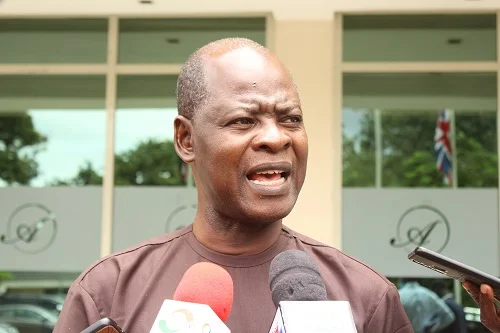Dr. Steve Manteaw, Co-Chair of the Ghana Extractive Industries Transparency Initiative (GHEITI), has advocated for a pragmatic approach to combatting illegal mining, commonly known as “galamsey,” in Ghana. He argues that instead of looking to distant countries like Australia for solutions, as suggested by President Mahama, Ghana should focus on successful models within Africa, specifically highlighting the Tanzanian approach as a readily adaptable framework. Manteaw emphasizes that Tanzania, sharing similar socio-cultural constructs with Ghana, offers a more relatable and potentially effective model for regulating artisanal mining, integrating miners into the formal sector, and providing sustainable alternative livelihoods, thereby mitigating the environmental degradation associated with galamsey. This proposition arises amidst renewed calls for decisive action against the devastating effects of illegal mining in Ghana.
Manteaw’s argument centers on the practicality and cultural relevance of the Tanzanian model. He contends that replicating a system proven effective within a similar African context is more likely to yield positive results than adopting practices from a vastly different environment like Australia. The Tanzanian strategy, he explains, involves providing clear pathways for informal miners to transition into legal operations, combined with robust regulatory oversight and community development initiatives. This approach, he posits, directly addresses the root causes of galamsey by offering viable alternatives and fostering a sense of ownership and responsibility among miners.
The core of the Tanzanian model lies in its multifaceted approach. It moves beyond mere law enforcement and embraces a holistic strategy that combines stringent but decentralized regulation, incentives for formalization, and the creation of genuinely sustainable alternative livelihood opportunities. This stands in stark contrast to what Manteaw describes as “token” livelihood projects, such as oil palm farming and grasscutter rearing, which he criticizes for their inadequacy in addressing the complex socio-economic factors driving individuals into illegal mining. He underscores the importance of providing alternatives that are both economically viable and socially acceptable to effectively divert people away from galamsey.
The urgency of finding effective solutions is underscored by the severe environmental and social consequences of galamsey in Ghana. The practice has ravaged over 60% of the nation’s water bodies, displaced farmers from their lands, and decimated vast tracts of forest reserves. These detrimental impacts highlight the need for a swift and effective response. Manteaw believes that adopting a locally adaptable model like Tanzania’s offers a greater chance of success compared to implementing strategies developed in vastly different contexts. This approach, he argues, not only enhances cultural relevance but also increases cost-effectiveness and overall impact.
Furthermore, Manteaw emphasizes that relying solely on force to combat galamsey is insufficient. While robust law enforcement is necessary, it must be complemented by strategies that address the underlying drivers of illegal mining. Simply cracking down on miners without providing alternative avenues for income generation will likely lead to a resurgence of the problem in different forms. The Tanzanian model, in contrast, seeks to address both the supply and demand sides of the issue by regulating the mining sector while simultaneously creating viable economic alternatives for those engaged in illegal activities.
In essence, Manteaw’s call for adopting the Tanzanian model represents a plea for a pragmatic and culturally sensitive approach to addressing the complex challenge of galamsey in Ghana. He argues that borrowing from successful experiences within Africa offers a more viable and sustainable solution than looking to distant countries with vastly different social and economic contexts. By focusing on a model that integrates regulation, formalization, and the creation of meaningful alternative livelihoods, Ghana can effectively combat illegal mining while promoting sustainable development and environmental protection.


